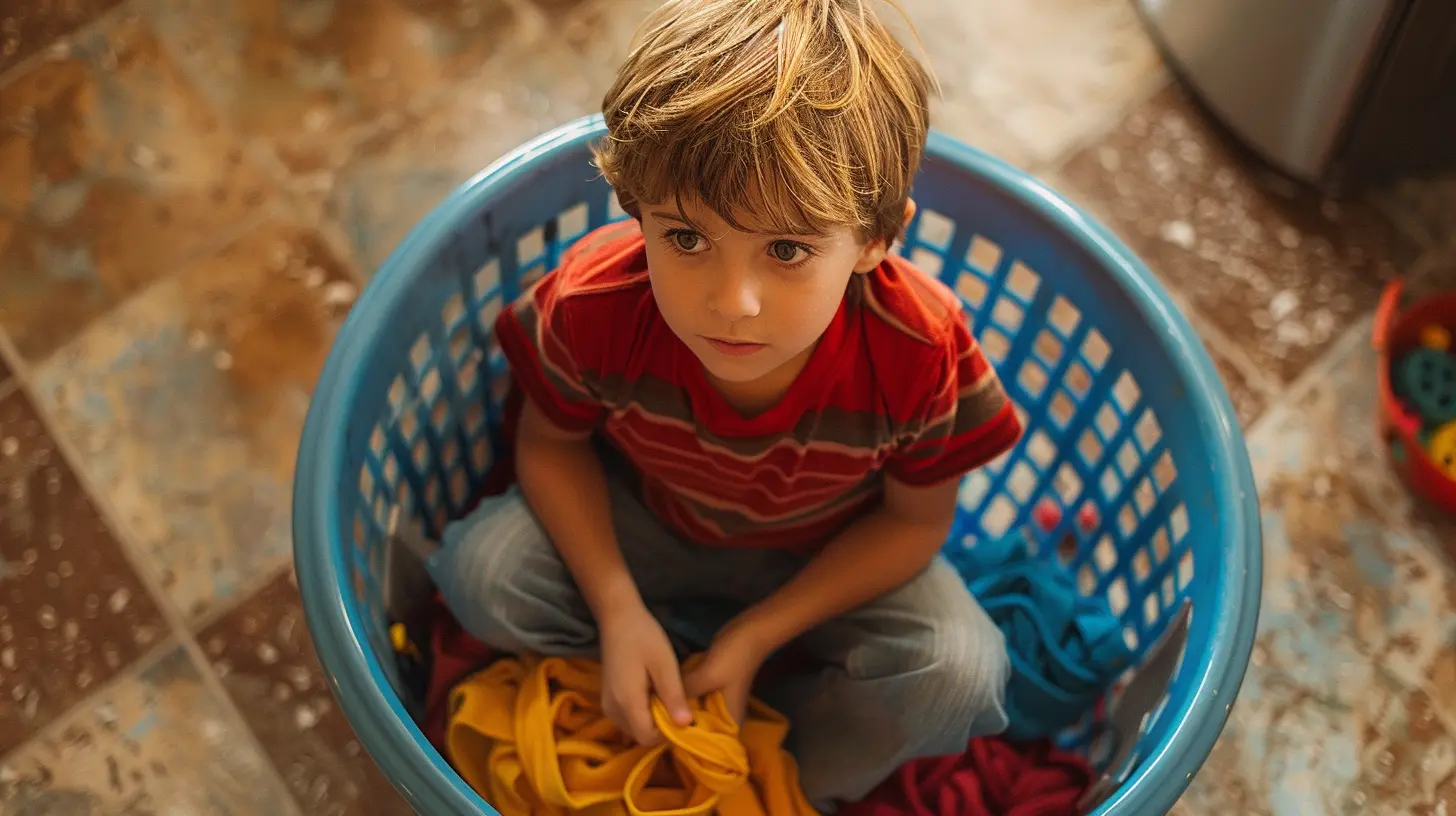The Secret to Keeping Chore Time Peaceful Despite Busy Schedules
30 August 2025
Let’s be honest—keeping the house clean while managing work, school, after-school activities, and everything in between can feel like a never-ending battle. Chores often become a source of stress, tension, and, let’s face it, more arguments than we’d like to admit.
But what if chore time didn’t have to be a struggle? What if, instead of nagging and frustration, there was a way to make chores a peaceful and even (dare I say it) enjoyable part of your family's routine?
In this article, we’ll unpack the secrets to maintaining a calm household while keeping up with chores, even when life gets crazy busy. 
Why Chores Become a Battleground in Busy Families
Before we dive into solutions, let’s address the elephant in the room—why do chores cause so much frustration in the first place?1. Time Constraints
Between work, school, extracurriculars, and meals, there’s barely any time left for anything else. When something as “minor” as cleaning up gets added to the mix, it feels like just another burden.2. Resistance from Kids
Let’s face it—most kids aren’t jumping for joy at the thought of cleaning their rooms or doing the dishes. The moment you bring up chores, you’re met with groans, eye rolls, and sometimes even full-blown tantrums.3. Lack of a Clear System
Are chores assigned randomly? Does one person end up doing most of the work while others get off easy? A lack of organization often leads to resentment and arguments.Seeing the problem is the first step to fixing it. Now, let's get into the secret sauce for keeping chore time peaceful.
The Secrets to Peaceful Chore Time Despite a Busy Schedule
1. Turn Chores into a Daily Habit, Not an Event
One of the biggest reasons chores feel like a burden is because they get tackled all at once, usually when the mess becomes unbearable. Instead of treating chores as a dreaded event, break them down into small, daily tasks that become second nature.- Example: Instead of dedicating Saturday mornings to a deep clean, have a “10-minute tidy-up” every evening before bed.
This prevents overwhelming messes from piling up and makes household maintenance feel effortless.
2. Assign Age-Appropriate Chores
A major mistake many parents make is giving their kids tasks that aren’t suited to their age or skill level. Younger kids need simple, manageable tasks, while older kids can handle more responsibility.Here’s a quick breakdown:
| Age Group | Chore Ideas |
|-------------|------------|
| 2-4 years | Putting toys in a basket, wiping small spills, placing laundry in the hamper |
| 5-7 years | Setting the table, feeding pets, dusting low surfaces |
| 8-10 years | Taking out the trash, folding laundry, sweeping floors |
| 11+ years | Washing dishes, vacuuming, cleaning bathrooms, helping with meal prep |
Giving kids tasks they can handle reduces whining and makes them feel capable.
3. Use the "When-Then" Method
Instead of nagging, try this simple parenting hack:👉 “When [chore] is done, then [desired activity] happens.”
For example:
- “When your toys are put away, then we can read your bedtime story.”
- “When your laundry is put in the basket, then you can have screen time.”
This gently reinforces responsibility, without arguments.
4. Make Chores Fun (Yes, It’s Possible!)
If chores feel like a punishment, no one will want to do them. The trick? Make them enjoyable!Here are a few fun ways to spice up chore time:
- Race Against the Clock – Set a timer and see if everyone can finish their tasks before it dings.
- Music Magic – Play upbeat songs and turn chore time into a mini dance party.
- Dice Game – Write different chores on a list, roll a dice, and do the corresponding task.
When you infuse fun into the routine, chores feel less like a chore and more like a game.
5. Use a Chore Chart or Reward System
Visual reminders help kids (and adults) stay on track. A simple chore chart with assigned tasks ensures everyone knows what they’re responsible for.For extra motivation, consider a reward system:
- Sticker Chart: Each completed task earns a sticker. After a certain number, they get a small reward.
- Point System: Different chores equal different points. Earn enough points to redeem privileges, like extra screen time or a special treat.
The key is balance. Rewards should be occasional motivators, not bribes.
6. Lead by Example
Let’s be real—kids won’t take chores seriously if they see their parents avoiding them. If they watch you pitching in, they’ll be more likely to follow suit.Let them see you tidying up, doing the dishes after meals, or making the bed in the morning. Model the behavior you want to see.
7. Set Realistic Expectations
A perfectly clean house every single day? Probably not going to happen—especially in a busy family.Instead of aiming for perfection, focus on progress and consistency.
- A somewhat tidy living room is better than a chaotic one.
- Dishes getting washed regularly is better than an overflowing sink.
- Clean clothes (even if not perfectly folded) are better than laundry piles.
Cut yourself (and your family) some slack!
What to Do When Resistance Still Happens
Even with the best systems in place, resistance will still pop up from time to time. Here’s how to handle it:- Stay Calm: If you’re frustrated, your kids will mirror that energy. Take a deep breath before addressing the issue.
- Give Choices: Instead of demanding, offer choices. “Do you want to set the table or feed the dog?”
- Use Natural Consequences: If they refuse to clean their space, don’t do it for them. Let them experience the discomfort of a messy room.
- Praise Effort, Not Perfection: Celebrate their hard work, even if the job isn’t done perfectly.
With a little patience and consistency, chore battles will become fewer and far between.
Final Thoughts: Peaceful Chore Time Is Possible
Busy schedules don’t have to mean chaotic, stressful chore time. With the right mindset and a few practical strategies, keeping up with household tasks can become a smooth part of your family’s routine.The secret? Make chores manageable, fun, and consistent.
- Small daily habits over big cleaning sprees
- Age-appropriate tasks
- Fun elements like music and games
- Clear expectations with gentle accountability
When you shift the way you approach chores, you’ll notice fewer arguments, more cooperation, and (best of all) a cleaner home without the stress.
So, ready to bring peace to chore time? Start small, be consistent, and watch the magic happen.
all images in this post were generated using AI tools
Category:
Kids And ChoresAuthor:

Maya Underwood
Discussion
rate this article
1 comments
Harrison Ortiz
“Why did the parent bring a ladder to chore time? To reach new heights of peace! With a sprinkle of humor and a dash of teamwork, even busy schedules can’t derail our little cleaning crusaders. Happy tidying!”
September 13, 2025 at 4:36 AM

Maya Underwood
Thank you for the delightful comment! Humor and teamwork truly make all the difference during chore time. 😊🌟


